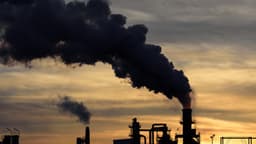Home / Environment / Scorching Planet: 2 Billion Face Deadly Heat by 2100
Scorching Planet: 2 Billion Face Deadly Heat by 2100
13 Nov
Summary
- World's average temperature has risen 1.3-1.4°C since pre-industrial times
- 2 billion people projected to live in life-threatening hot climates by 2100
- Most affected regions include India, Nigeria, Indonesia, Philippines, Pakistan

According to a recent study published in Nature Sustainability, the world is on track to heat up significantly by the end of the century, with dire consequences for billions of people. As of 2025, the global average temperature has already risen by roughly 1.3-1.4 degrees Celsius (about 2 degrees Fahrenheit) above pre-industrial levels due to human activity.
The Paris Agreement, an international treaty aimed at limiting heat-trapping gas emissions, proposed capping the temperature increase at 2.7 degrees Fahrenheit. However, the new study found that with current laws, population growth, and environmental conditions, the world will likely reach about 4.8 degrees Fahrenheit above the pre-industrial benchmark by 2100.
This projected temperature rise means that over 2 billion out of the world's projected population of 9.5 billion will live in areas with an average temperature higher than 84.2 degrees Fahrenheit. The most affected regions are expected to be countries around the equator, including India, Nigeria, Indonesia, the Philippines, and Pakistan.
The study's author, Tim Lenton of the University of Exeter, warns that this "profound reshaping of the habitability of the surface of the planet" could lead to large-scale population shifts. Reaching the Paris Agreement's goal would limit the affected population to half a billion people instead of 2 billion, underscoring the critical importance of immediate action to address the climate crisis.



